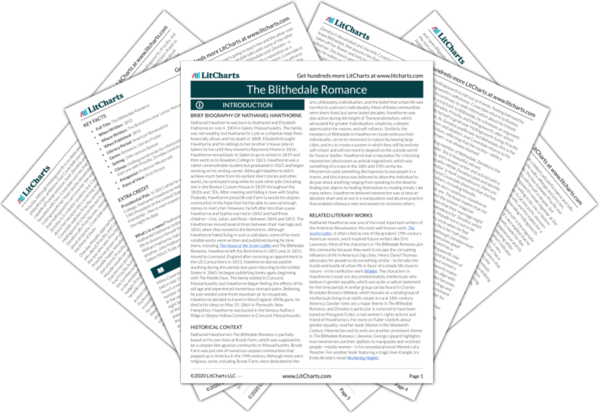Zenobia is actively hiding the jealousy she feels about the kindness Hollingsworth shows Priscilla. Zenobia says she wants to teach Priscilla about propriety, which means she intends to tell Priscilla that there are certain rules she must abide by in her relationship with Hollingsworth or else people will think less of her. In this time period, women were not supposed to openly show affection to men they weren’t married to, so it would be considered a breach of etiquette and serious societal faux pas for Priscilla to spend so much time curling up at Hollingsworth’s feet. However, Blithedale is supposed to be a much less restrictive place where people can break these meaningless social rules without fear of judgment—and, in addition, Zenobia herself is in favor of freeing women from oppressive norms. Zenobia’s real aim, then, is to get Priscilla to back off from Hollingsworth because Zenobia wants to pursue him herself. This shows Zenobia’s selfishness; she’s willing to betray her values and ideals about women's equality to manipulate Priscilla out of taking the man Zenobia wants. It’s also worth noting that Coverdale is more worried about Priscilla than Zenobia; in light of how things unfold, this will be another example of Coverdale observing people closely and coming to the wrong conclusion.
